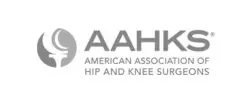Infections involving joint replacements can be disastrous in that the body’s immune system cannot cure them without further surgery to wash out the joint. Prolonged antibiotic therapy for 6 weeks is required and some patients require removal of the infected joint and full revision surgery. Fortunately, the risk of infection is around 1% and there are known risk factors some of which are modifiable prior to surgery. Anything that can reduce the risk is a step worth taking to avoid the consequences of this complication. As follows are 10 steps patients can take to reduce the risk of infection around the time of surgery.
- Wash your hands frequently. Hands transport germs from one surface to another. Hand washing has proven to reduce transmission of infections. Sanitizers such as Purell and similar topical antibacterials should be used vigilantly around the time of surgery.
- Keep your skin protected from abrasions, cuts and scrapes prior to surgery.
- Work toward ideal body weight. Obesity is a risk factor for infection and efforts to lose weight can reduce infection risk.
- Eat well in the weeks leading up to surgery. Good nutrition helps with wound healing as does supplementation including Vitamin C, Vitamin D and zinc. Poor nutrition is a risk factor for infection.
- If you have diabetes, make sure your blood sugars are in good control. Poorly controlled diabetes raises the risk of infection.
- Avoid nicotine use 6 weeks prior to surgery. Smoking especially has been shown to impair wound healing and can raise infection risk.
- Wash with an antibacterial soap in the days leading up to surgery. This reduces the bacterial load in the skin.
- Keep your incision clean and dry in the first week after surgery.
- Follow your surgeon’s recommendations on prophylactic antibiotics around postoperative procedures such as dental work and other invasive procedures which can introduce bacteria into the bloodstream.
- Call your surgeon if you notice any drainage or discharge from the incision in the first few weeks after surgery.














